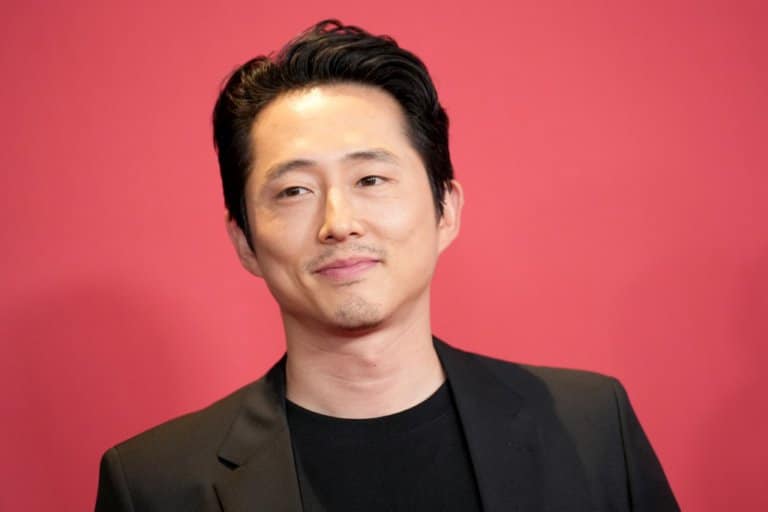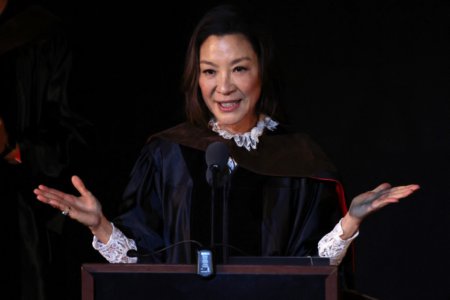
Steven Yeun played Glenn Rhee, a survivor of a zombie outbreak on AMC’s “The Walking Dead.”
In “Minari,” he played a careworn farmer dad as he persuades his family to acclimate to 1980s Arkansas while attempting to set up a farm after moving there from California.
The film was so successful that it earned him a nomination for the Academy Award for Best Actor, making him the first Asian-American to achieve this feat.
On April 6, he will appear alongside Ali Wong — an American stand-up comedian — in “Beef,“, a Netflix series about a road rage incident between two strangers that sparks a feud that brings out their darkest impulses.
Yeun has won success after success, blazing his way as a minority in cutthroat Hollywood — but all of this almost didn’t happen.
Had he caved to his Korean-American parents’ less-than-enthusiastic response to this passion for acting, we wouldn’t have one of the most prolific actors in the US today.
We would have Steven Yeun — another doctor, lawyer, or engineer.

It’s hard to convince your parents who hold strong to their traditional values that you want to try something different. Yeun knows this well. Source: Roger Kisby/Getty Images North America/Getty Imgaes/AFP
“He was angry because he thought I was selling myself to a life of porn”
Growing up, Yeun lived in various countries.
Born in Seoul, his architect father uprooted the family when he was five. After a short spell in Canada, they ended up in Detroit, according to The Guardian.
In an interview with New York Times, he shares: “I was raised in a Christian household and heard a lot of praise music.”
It was a conservative and traditional first-gen Korean-American family. So, it’s hardly surprising to read that his parents wanted him to become a lawyer or doctor.
Yeun did not listen to them — well, not entirely. Instead, he chose to study psychology (with a concentration in neuroscience) at Kalamazoo College, where he performed in an improv group.
Then, he rebelled against his parents and went into acting full-time.
Five months after arriving in Hollywood, the Korean-American tried out for the role of Glenn Rhee on “The Walking Dead”, according to the New York Times.
The rest was history.
Despite this, it took a while for Yeun’s parents to understand the trajectory of their son’s career.
“My dad would search my name on Google and go to page 30,” he shares in an interview with Conan O’Brien.
“When you got to page 30, there’s not good things on page 30 of Google. It’s mostly like just Photoshop versions of people with penises everywhere.”
That’s not all.
“He was angry because he thought I was selling myself to a life of porn that I was doing C-level — not even good porn,” he laughs while sharing the story.
His mum is still not convinced he made the right choice.
In another interview with Seth Myers, he shares: “I’ve just been trying to find my mom’s approval my whole professional career.”
Regardless, he still loves his parents — despite the communication and cultural rifts that exist between them.

Actor Steven Yeun speaks onstage at AMC’s “The Walking Dead” panel during Comic-Con International 2015 at the San Diego Convention Center on July 10, 2015 in San Diego, California. Source: Kevin Winter/Getty Images North America/Getty Images/AFP
What Steven Yeun’s success means for Asian kids worldwide
We understand that Asian parents mean well when they say no to aspiring actors like young Yeun.
A traditional career in medicine, engineering and law, is stable and safe.
There are more successful doctors, engineers and lawyers than there are successful actors. Not everyone becomes Michelle Yeoh or Shah Rukh Khan overnight too.
But anyone with a degree can step into a pretty decent job after college.
Job security, however, shouldn’t be the all and be-all when choosing what to study and what to do in life.
Passions matter — and they should be allowed to flourish as much as possible and yet in as practical a way as possible.
If a family can afford it, why not? There’s little harm in allowing young people to chase their interests in music, films and art.
Kill their enthusiasm and they may be set up for a life they do not want for themselves, however secure that may be.










